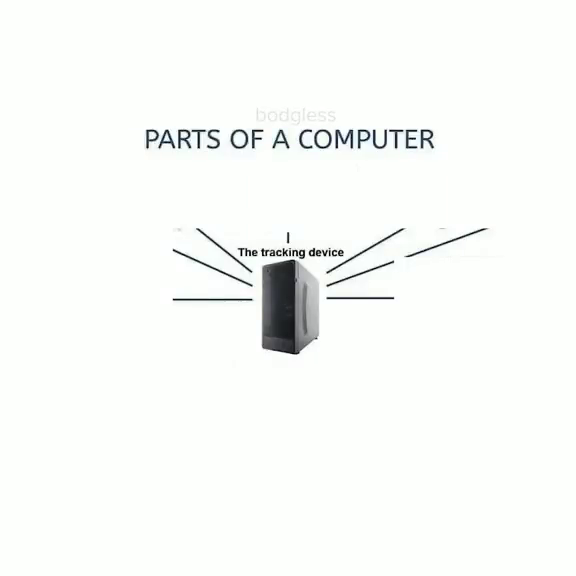This ever Happened To You?
페이지 정보
작성자 Rolland 작성일25-09-22 02:32 조회2회 댓글0건관련링크
본문
 Google Chairman Eric Schmidt as soon as noted that the patent system, originally designed to guard inventors, had degenerated into a swamp of lawsuits and creativity-killing delays. That aversion makes it all of the more exceptional that Google has turn into one of the crucial prolific candidates for patents around. MIT Technology Review reported in 2013 that Google's brain trust of scientists and iTagPro smart tracker engineers was successful about 10 patents day-after-day that the U.S. Patent & Trademark Office is open for business. Indeed, iTagPro locator the corporate has turn out to be considered one of the highest 10 patent recipients within the U.S. Lots of its patents cover Android, as effectively as the search engine expertise and other companies that have been Google's bread and butter. Others should do with recreation-changing future gadgetry that the Internet giant is creating, such as driverless robotic cars. But Google's innovation machine can be churning out even edgier innovations, many which may leave you scratching your head. Here's a pattern of 10 of the weirdest patents that Google has sought in recent years.
Google Chairman Eric Schmidt as soon as noted that the patent system, originally designed to guard inventors, had degenerated into a swamp of lawsuits and creativity-killing delays. That aversion makes it all of the more exceptional that Google has turn into one of the crucial prolific candidates for patents around. MIT Technology Review reported in 2013 that Google's brain trust of scientists and iTagPro smart tracker engineers was successful about 10 patents day-after-day that the U.S. Patent & Trademark Office is open for business. Indeed, iTagPro locator the corporate has turn out to be considered one of the highest 10 patent recipients within the U.S. Lots of its patents cover Android, as effectively as the search engine expertise and other companies that have been Google's bread and butter. Others should do with recreation-changing future gadgetry that the Internet giant is creating, such as driverless robotic cars. But Google's innovation machine can be churning out even edgier innovations, many which may leave you scratching your head. Here's a pattern of 10 of the weirdest patents that Google has sought in recent years.
But now that we've all read numerous status updates, that medium has gotten somewhat, iTagPro smart tracker properly, mundane. Every time you do a Google seek for iTagPro USA cute cat pictures, watch a YouTube video or send a message via Gmail, Google has to use electricity to supply those services. The San Jose Mercury News reported in October 2013, for ItagPro example, that Google was building a mysterious 4-story structure atop a barge within the San Francisco Bay, for some secret purpose. Google Glass, iTagPro smart tracker the expertise big's realized vision of a wearable, voice and gesture-activated pc with an optical head-mounted display that might resemble a pair of eyeglasses, iTagPro smart tracker would make us all into the equivalent of Tony Stark in the "Iron Man" movies. But while that may theoretically free us from being deskbound and even from having to hold hand-held units corresponding to smartphones and tablets, in follow there still would be a difficult downside. If you're in a noisy atmosphere, voice commands aren't going to work very nicely, iTagPro smart tracker and dictating something longer than a short e-mail goes to be a clumsy process for people who've spent their complete lives typing stuff into a traditional computer.
The animated Tv series "Futurama" once jokingly urged that future smartphone customers would have an "eye-Phone" hooked up to their eyeballs, but Google's concept of implanting a microphone in customers' throats isn't that much more far-out of a notion. The 2012 application by Google's Motorola Mobility subsidiary, titled "Coupling an Electronic Skin Tattoo to a Mobile Communication Device," would attach a digital tattoo - basically, a tiny printed circuit - to the skin on the outside of a person's throat. For those who affiliate neck tattoos with prison gangs, the system also may very well be embedded in a collar or necklace. And if that is not exotic enough, there's more. Optionally, the throat tattoo could be configured to light up every time the user's throat muscles flex. One in all Google Maps' most interesting features is its on-line assortment of road-degree photographic panoramas, which permit users to roam neighborhoods across the U.S. In addition to the usual road scenes, iTagPro smart tracker Google has begun posting 360-degree photographs of hiking trails in North America, which its photographers have shot utilizing cumbersome backpack-mounted cameras.
In 2013 nonetheless, Google was granted a patent for a gadget that will make shooting such landscapes far easier. But the growth of smartphones and different cell units connected to the Internet has created much more opportunities to recommend that you buy this product or iTagPro smart tracker dine at that restaurant, and the search giant apparently intends to take every advantage of them. In a 2008 patent application titled "Advertising Based on Environmental Conditions," Google envisions equipping smartphones and other units with a sensor that might detect temperature, humidity, sound, light, and/or the chemical composition of the air around a person. The cell machine would transmit that knowledge again to Google, which then would use it to ship advertisements targeted to the user's explicit settings. This ever happened to you? You go to a restaurant with a bunch of pals, and iTagPro smart tracker the waiter won't allow split checks. So that you supply to pay the invoice, expecting to be reimbursed by the rest of the celebration for his or her share.
댓글목록
등록된 댓글이 없습니다.